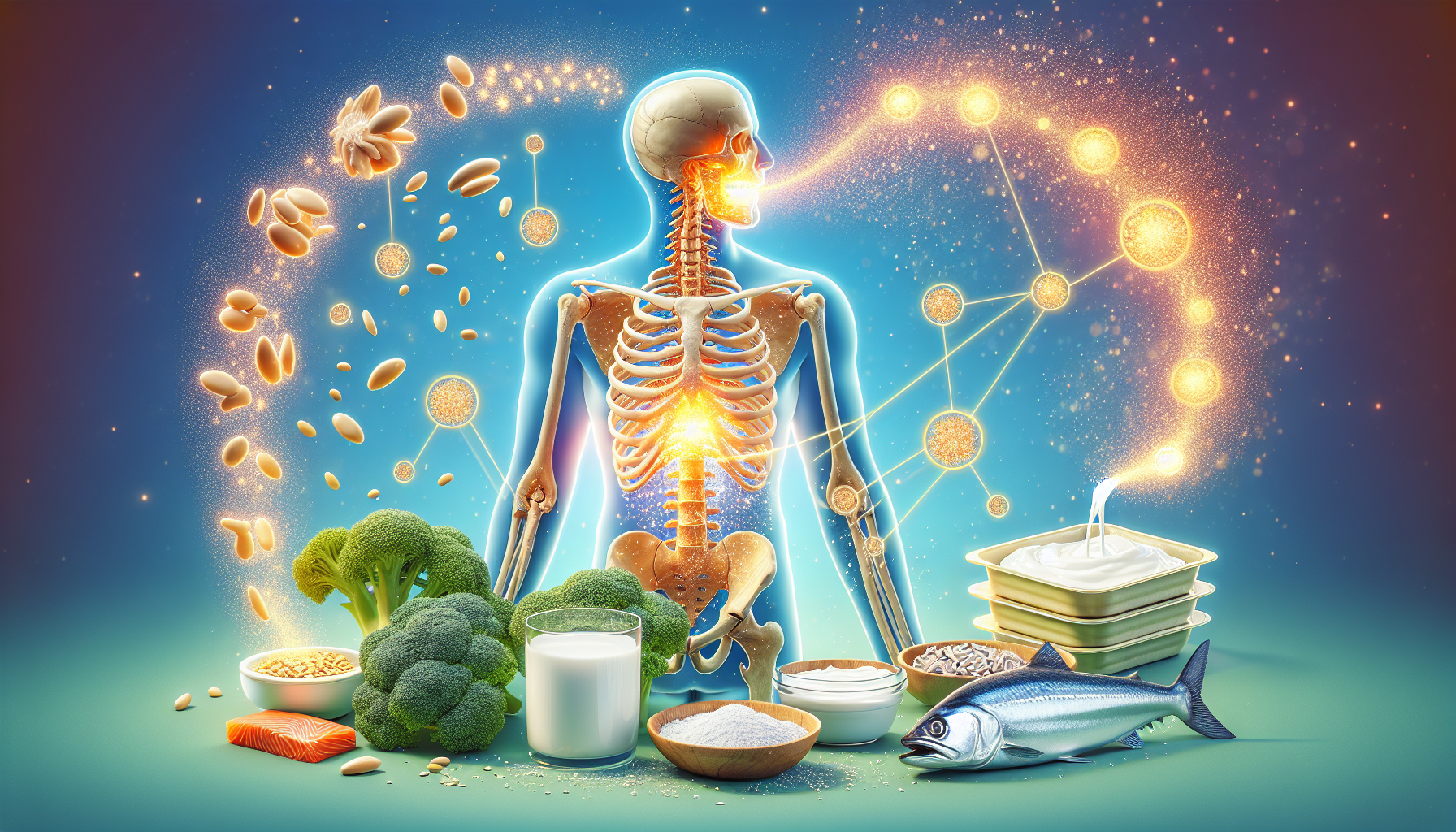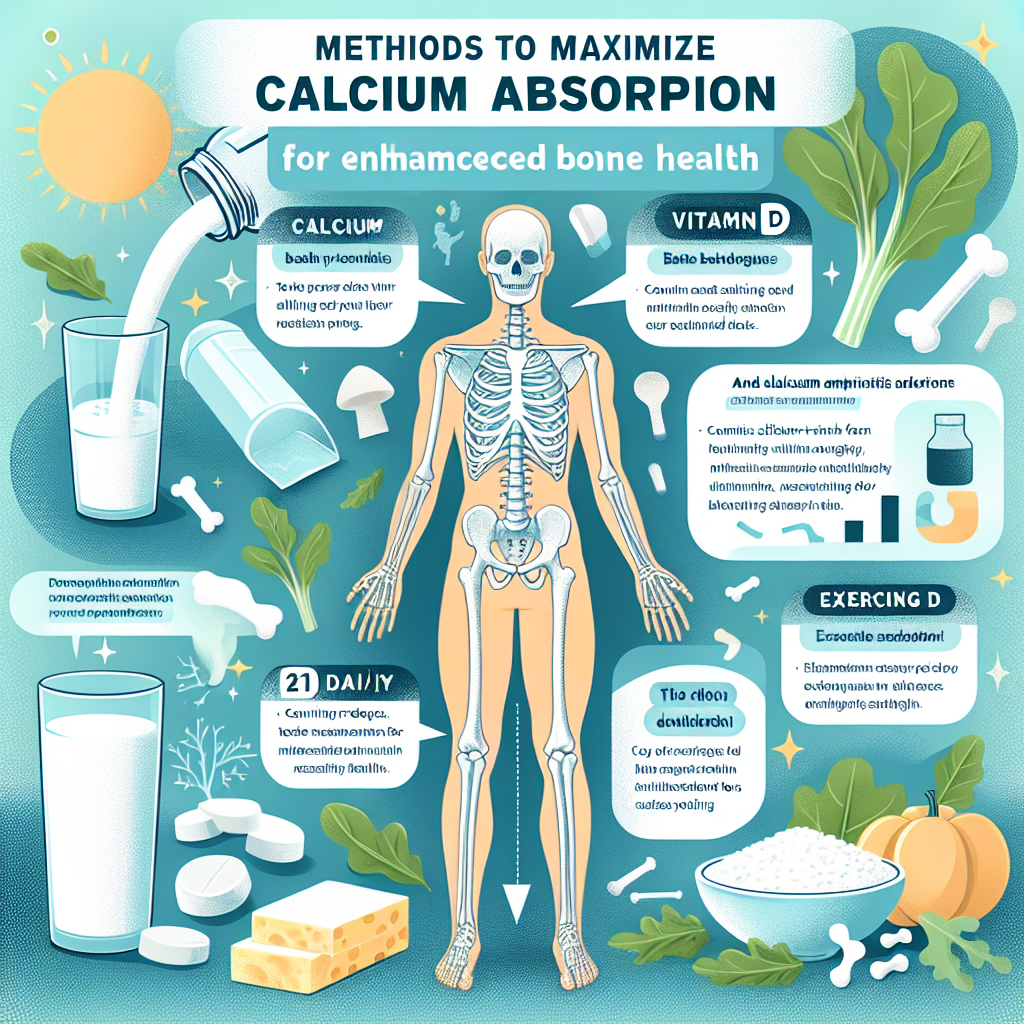Calcium is a cornerstone mineral for maintaining bone health and strength. As the most abundant mineral in the body, it’s essential not only for bone structure but also for vital functions such as muscle contraction and nerve signaling. However, simply ingesting calcium-rich foods or supplements is not enough; our bodies need to absorb this mineral effectively to reap the benefits. This comprehensive guide will delve into the intricacies of calcium absorption and provide strategies to maximize its uptake for optimal bone health.
Understanding Calcium Absorption
Calcium absorption is a complex process influenced by various factors, including age, dietary components, and overall health. It occurs primarily in the small intestine and can vary throughout life. For instance, infants and young children can absorb up to 60% of calcium intake due to their growing bones, while adults typically absorb about 20%.
Factors Affecting Calcium Absorption
- Vitamin D: This is crucial for calcium absorption. Without adequate vitamin D, the intestine cannot effectively absorb calcium from the diet.
- Age and Hormones: As we age, changes in hormone levels can affect how well our bodies absorb calcium. Postmenopausal women, in particular, may experience decreased absorption.
- Dietary Factors: Phytic acid and oxalic acid, found in plant foods like spinach and grains, can bind to calcium and reduce its absorption. Conversely, certain sugars and amino acids can enhance absorption.
- Stomach Acid: Calcium is best absorbed when the stomach acid level is optimal. Conditions that reduce stomach acid, such as chronic proton pump inhibitor use, can impair calcium absorption.
- Total Calcium Intake: The body absorbs calcium in small amounts. Thus, consuming it in divided doses throughout the day can increase overall absorption.
To learn more about the role of calcium in maintaining Bone Health, visit Avix Health for detailed insights and guidance.
Dietary Sources of Calcium
Incorporating a variety of calcium-rich foods into your diet is a critical step toward ensuring adequate calcium intake. Dairy products like milk, cheese, and yogurt are well-known sources, but non-dairy options are also abundant. Leafy green vegetables, almonds, tofu, and fortified foods provide calcium that can cater to those with different dietary preferences or restrictions.
Enhancing Calcium Absorption from Foods
Eating your calcium source with a meal can increase absorption, thanks to the presence of other nutrients and the stimulation of stomach acid. Combining a calcium-rich food with a source of vitamin D, such as a fortified orange juice or salmon, can further enhance absorption.
Supplements: Finding the Right Balance
For those unable to meet their calcium needs through diet alone, supplements can be an effective alternative. Calcium citrate and calcium carbonate are the most common forms. Calcium citrate can be taken with or without food and is often recommended for individuals with digestive issues or reduced stomach acid. Calcium carbonate, however, is best taken with food to improve absorption.
When considering supplements, it’s important to factor in all sources of dietary calcium to avoid excessive intake, which can lead to negative health outcomes such as kidney stones or cardiovascular issues.
To ensure you’re choosing the right supplement for your needs, explore the variety of options discussed in Bone Health Supplements: What Works?
Lifestyle Factors Influencing Calcium Absorption
Several lifestyle choices can significantly impact calcium absorption and bone health:
- Regular Exercise: Weight-bearing exercises, like walking, running, and resistance training, can help build and maintain bone density.
- Moderating Caffeine and Alcohol: Excessive consumption of caffeine and alcohol has been linked to decreased calcium absorption and should be consumed in moderation.
- Quitting Smoking: Smoking can interfere with the body’s ability to absorb calcium, thus quitting is beneficial for bone health.
For specific strategies on how to incorporate these lifestyle changes, refer to Strategies for Recovering from Bone Injuries.
External Factors Affecting Calcium Status
Beyond diet and lifestyle, certain medications and health conditions can influence calcium status. Proton pump inhibitors, widely used for acid reflux, can reduce calcium absorption, while some diuretics can increase calcium excretion. Health conditions affecting the digestive system, like Crohn’s disease or celiac disease, can also impair absorption.
High-Quality External Resources
To deepen your understanding of calcium’s role in bone health and how to maximize absorption, consider these niche resources:
- For an in-depth analysis of how various nutrients interact with calcium, Linus Pauling Institute’s overview on Calcium provides comprehensive information.
- Research on the effects of exercise on bone density is available from The National Institute of Health’s study on Physical Activity and Bone Health.
- Insights into the link between smoking, caffeine, alcohol, and calcium absorption can be found at The International Osteoporosis Foundation’s Lifestyle and Dietary Considerations.
Conclusion
Calcium plays a pivotal role in supporting bone health and overall well-being. To maximize calcium absorption, a combined approach involving a balanced diet rich in calcium and vitamin D, appropriate supplementation, and healthy lifestyle choices is essential. By understanding the factors that influence absorption and making informed decisions, you can ensure that your body has the necessary resources to build and maintain strong bones throughout your life.
For a more comprehensive understanding of the interplay between diet, lifestyle, and bone health, and to learn about the impact of other nutrients on your skeletal system, explore the wealth of information and resources available at Avix Health.



